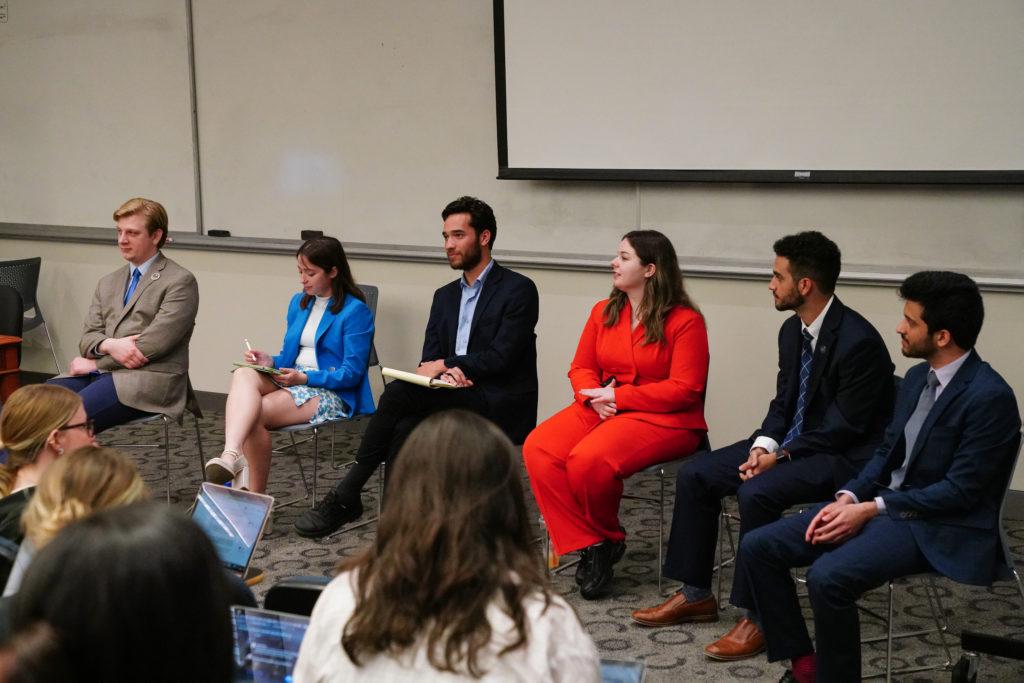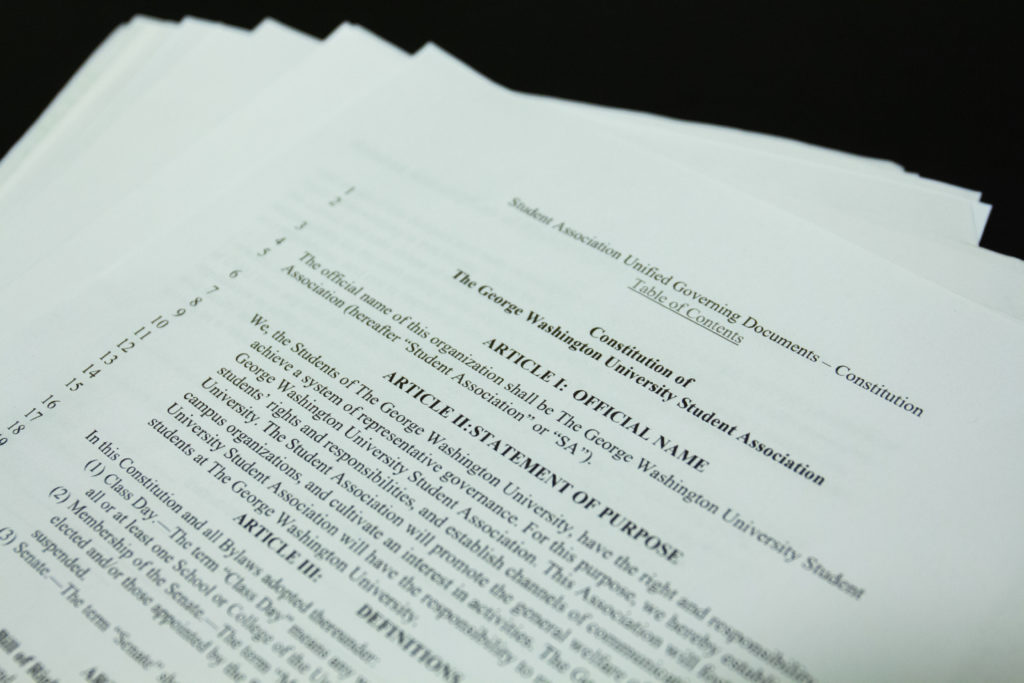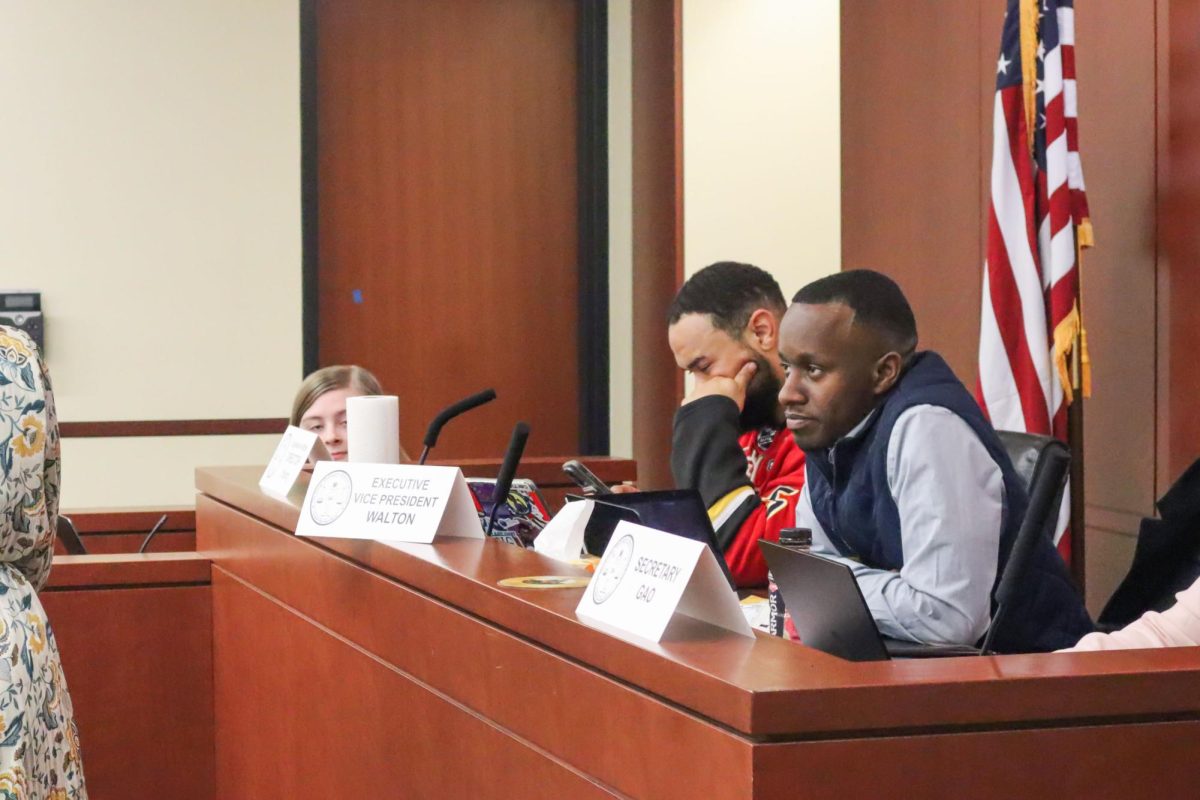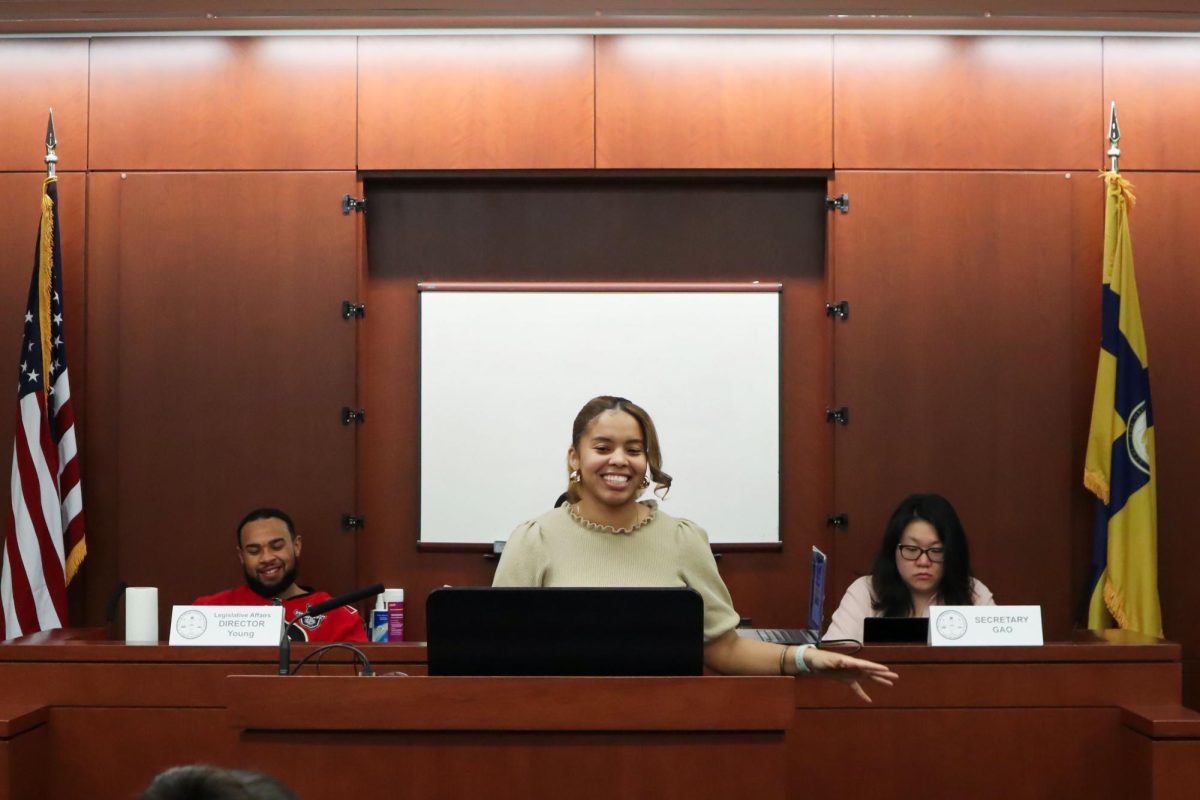Year: Junior
Hometown: Cape Coral, Florida
Major: Religion and political science
Student organizations/activities: Clearminds, Allied in Pride, Women’s Pre-Law Association and Sigma Alpha Epsilon Pi
SA experience: Executive secretary of affordability, senior policy adviser
Favorite restaurant in the District: Chipotle and Tatte
“Only at GW” moment: Living on E Street and seeing President Joe Biden drive by
Favorite class: The Life and Thought of Paul with Paul Duff
Go-to study spot: My bed or the third floor of Gelman Library
Role model: My mom
Moniker choice: Blue Fog
Deli order: Blueberry bagel with strawberry cream cheese
Edy Koenigs’ bathroom ceiling caved in last April.
To repair it, maintenance staff tore down and replaced her bathroom walls in her 1959 E Street room, giving her 20 minutes to pack the items she would need for the next two weeks before she moved out of the room. Relocated to International House, Koenigs never moved back in.
The move out of 1959 E Street was Koenigs’ second of the year after she was also forced to move out of her room in The Dakota that fall due to mold growth. After her first room switch, Koenigs said she went on to have conversations with housing officials about issues she and other students experienced on campus.
Her concerns about campus-wide sexual assault and a lack of accessibility in classes motivated her to run for SA president and make key changes to university policies herself.
“I decided to run because of issues that I’ve seen on campus and issues that people have brought up to me about things going on on campus that I couldn’t allow to go unresolved and unanswered,” she said.
Koenigs, the first to announce a run for the Student Association presidency in early March, said she hopes to combat prejudice and sexual assault on campus as key points in her platform.
“There’s a variety of different types of students,” she said. “And I want to be able to address something that’s not being addressed in each of that different variety of students’ lives.”
She plans to increase accountability in the Title IX Office surrounding the case reporting process and hopes to raise awareness of how to access therapy in the District.
Koenigs said she will create a form so students can report to the SA if the Title IX Office dissuades them from reporting sexual assaults or takes too long to respond to them. Students voiced concerns last October about delayed outreach and privacy breaches from the Title IX Office in response to reports of sexual assault.
Koenigs said she would work with student organizations like GW Reproductive Autonomy and Gender Equity and Active Minds to expand awareness on how to access therapy within the District, especially for sexual assault survivors. She said finding nearby, in-person therapists compatible with insurance is “time-consuming.”
She said she will also require diversity, equity and inclusion training for all professors to reduce “prejudicial instances” in classes. SA presidential candidates in 2021 and 2022 also advocated for mandatory diversity training, but the SA president only has authority over student affairs, according to the SA constitution.
She said she would work with officials to make the DEI training a part of all new professors’ contracts, and diversity and inclusion-focused student organizations like GW RAGE should help conduct the training.
The University has required students to participate in diversity, equity and inclusion training since 2018, but it does not require faculty to participate. Faculty can request training from the Office of Diversity, Equity and Community Engagement on race, ethnicity, culture and other topics.
If elected, Koenigs said she will also host an expert panel to discuss how eating disorders affect students on college campuses. She said she also plans facilitate workshops in dining halls and the University Student Center to help students build “healthy relationships with food.”
“Food is what brings people together,” Koenigs said. “It’s what helps bond and what creates community. Limiting that, I think, limits student engagement.”
Koenigs said she will work with schools and departments to mandate that professors allow laptops and tablets in classrooms to accommodate students with disabilities. She said even when students have accommodations from Disability Support Services, they could feel singled out if they are the only students in class with electronics.
She said for those who do not have accommodations, bans on devices are also unfair because they may not have the “time, money or family support to get a diagnosis” that would allow them to use technology in class.
Koenigs said she will listen to students and promote a “welcoming environment.”
“I will work tirelessly on behalf of the students no matter what,” she said.











